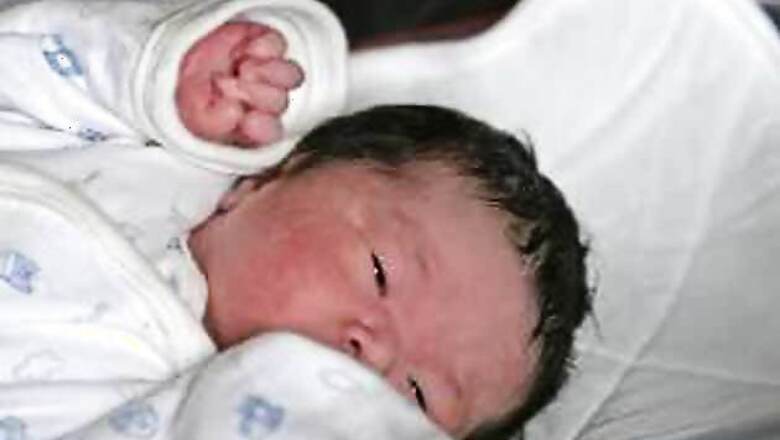
views
Beijing: Facing a demographic crisis with an ageing population, China is mulling a move to further relax its one-child policy by permitting couples to have a second child if either the husband or wife hails from a one-child family.
According to the current policy, both father and mother must be the only children of their respective families in order to have a second child. Revealing government's plans to relax the rigidly implanted rule, Mao Qun'an, spokesman for the National Health and Family Planning Commission said China must adhere to the basic state policy of family planning for a long period of time.
The policy, implemented in 1978, restricts urban couples to only one child, while allowing additional children in several cases, including twins, rural couples, ethnic minorities, and couples who are both only-child themselves. According to last year's report by the China Development Research Foundation, China had about 185 million people above the age of 60, or 13.7 per cent of the population.
The figure is expected to surge to 221 million in 2015, including 51 million "empty nesters," or elderly people whose children no longer live with them. The report recommended that China should consider adjusting its family planning policy, as structural problems have overtaken excessive growth as the most significant population-related problem.
Several cities, including Shanghai, have already relaxed the norm.
The problem was highlighted when a man killed two one-child policy officials and injured several in Dongxing city last month for refusing to register his fourth child. Officials, however, argue that the policy prevented over 400 million births pegging the population to over 1.30 billion. Mao said that because the country's basic conditions still include a huge population, weak economic foundations, sparse per capita resources and insufficient environmental capacity, the population will continue to put pressure on and strain the economy, society, resources and the environment.
However, he said, one of the recently restructured commission's major tasks lies in improving the family planning policy. It is organising surveys and studies on the correlations between the size, quality, structure and distribution of China's population.
To improve population policies, Mao said, China must maintain the current low birth rate while also taking into consideration the public's needs, social and economic development, and changes in the population structure.



















Comments
0 comment